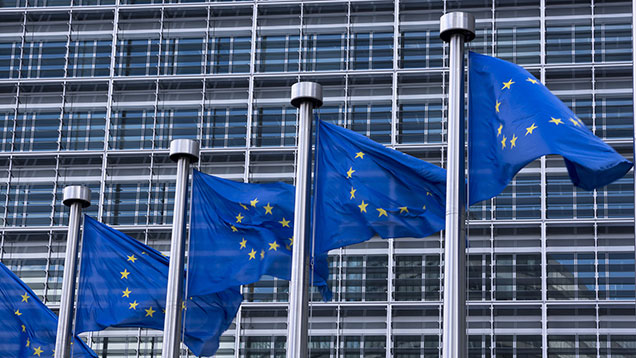Farmers to split quota fines over three years
 © REX/WestEnd61
© REX/WestEnd61 European farmers facing superlevy fines for exceeding their milk quota will not have to pay up immediately, after a vote on Wednesday (11 March).
The management committee of EU farming officials overwhelming passed proposals to let countries stagger payments over three years.
Dairy farmers in Ireland, Denmark, Germany and the Netherlands are ramping up production ahead of quota abolition in April, but could face heavy fines in the final year of the limits.
See also: No European milk flood this year, EU predicts
Milk processors and farmers being able to split the fines over 2015-2017, though national governments will still have to pay up this year.
Pembrokeshire farmer Mansel Raymond, chair of the milk working party for European union Copa-Cogeca, said the result would ease some pressure.
“Hit by low prices, soaring input costs and a poor turnover, milk producers are facing severe economic difficulties,” he said.
But Copa-Cogeca’s secretary-general Pekka Pesonen called on the commission to do even more, as the fines would still see a lot of money leave the industry.
The UK was one of 22 countries that voted for the payment delay, with three going against the plans and three abstaining.
But British farmers should fall comfortably short of their limits in the current milk year.
Latest projects from The Dairy Group expect UK annual production to end April at 14.4bn litres – 800m litres below quota after butterfat adjustments.
NFU Scotland criticised the superlevy decision, saying it encouraged European farmers to “turn on the tap” in the coming weeks which would only add to market pressure over the spring flush.
“This last-minute change to the quota rules – only weeks before the regime ends – hands an advantage to producers in some member states, some of whom have repeatedly broken quota limits over the years,” said milk committee chair Graeme Kilpatrick.
“Worryingly, allowing European farmers to repay the milk superlevy over three years means we can anticipate that production which had been pulled back through the threat of suplerlevy will again be unleashed in the last few weeks of the scheme.”
This week the commission’s short-term outlook forecast EU milk production to rise just 1% in 2015, on the back of 4.5% annual growth last year.
Milk output will keep falling in the first quarter of the year, before expanding again once quotas are lifted in the spring.
